Quick Answer
If you’re wondering whether a bottle of apple cider vinegar (ACV) can calm the itch and flakiness of scalp psoriasis, the short answer is: maybe, but only if you use it correctly. Diluted ACV can soothe mild irritation on intact skin, yet it offers no cure and may burn cracked or bleeding areas. Think of it as a modest, inexpensive side‑kick to your prescribed scalp psoriasis treatment, not a replacement.
What Is Scalp Psoriasis
Scalp psoriasis is a chronic autoimmune flare‑up that shows up as thick, silvery‑white scales, red patches, and persistent itching. Unlike everyday dandruff, the scales are tougher, the itching can be painful, and the condition may spill over to the forehead, behind the ears, or even the neck.
Here’s a quick snapshot to keep straight in your head:
| Feature | Scalp Psoriasis | Dandruff | Seborrheic Dermatitis |
|---|---|---|---|
| Scale thickness | Heavy, plate‑like | Fine, powdery | Greasy, flaky |
| Redness | Bright pink‑purple | Light pink | Variable |
| Itch level | Moderate‑to‑severe | Mild | Moderate |
| Response to anti‑dandruff shampoo | Often limited | Good | Variable |
Apple Cider Vinegar Science
ACV is basically fermented apple juice. During fermentation, yeast turns sugar into alcohol, then “good” bacteria (Acetobacter) convert that alcohol into acetic acid. The cloudy sediment known as “the mother” contains live probiotics, trace minerals, and antioxidants.
People love ACV for three skin‑related reasons:
- Antimicrobial action: The acidity can kill some bacteria and fungi, which may calm itching caused by secondary infections.
- pH‑balancing power: Healthy scalp skin sits at a slightly acidic pH of about 5.5. Regular shampoos often sit at a higher, more alkaline pH, which can disrupt the barrier and fuel inflammation. ACV may gently pull the pH back toward its sweet spot.
- Gentle exfoliation: The acetic acid loosens dead skin cells, making the stubborn plaque a bit easier to rinse away.
But here’s the hard truth: research on ACV for scalp psoriasis is scant. A 2018 article from Medical News Today notes that “there appear to be no risks when using ACV for psoriasis, but no research has determined its effects on the condition.” Dermatologists echo the same sentiment—ACV may be helpful for some, irritating for others.
Safe Use Guide
When I first tried ACV on my own flaky scalp, I made a rookie mistake: I splashed undiluted vinegar straight onto the skin. The sting was like a tiny acid burn, and I stopped after a single day. The lesson? Dilution is non‑negotiable.
Dilution Ratio
The “golden 1:1” rule is widely recommended: one part organic, unfiltered ACV to one part water at room temperature. If your scalp is particularly sensitive, stretch it to 1 part ACV and 2 parts water.
Application Methods
- Spray‑bottle mist: Fill a clean spray bottle with the diluted solution, mist the scalp, massage gently, wait 10‑15 minutes, then rinse with lukewarm water.
- Cotton‑ball soak: Soak a cotton ball, dab directly onto plaques, let sit for 5‑10 minutes, rinse.
- Wet‑wrap: Soak gauze strips, wrap around the affected area, leave on for 15 minutes before rinsing. Great if you have larger patches.
Frequency & Duration
Use the rinse 2–3 times per week. Most people start seeing a subtle reduction in itch after 2–4 weeks of consistent use. If you notice burning, redness, or worsening flaking, stop immediately and rinse with plain water.
When to Skip ACV
Never apply ACV to:
- Open wounds, cracked skin, or bleeding patches.
- Scalp that’s actively infected (pus, foul odor).
- If you’re using a topical steroid that has left your skin thin—ACV can increase irritation.
Aspirin Myth
Scrolling through Instagram, you’ll often see the “ACV + crushed aspirin” recipe. The logic is that aspirin contains salicylic acid, a proven keratolytic (scale‑removing) agent, so mixing the two should amp up the exfoliation.
Unfortunately, there’s no scientific trial confirming that this combo works any better than plain ACV. A 2025 Healthline review explicitly states, “there is no research showing the effectiveness of aspirin on psoriasis, with or without ACV.” Moreover, aspirin can cause allergic reactions or additional skin irritation, especially on already inflamed scalp.
If you love salicylic acid, it’s safer to reach for an over‑the‑counter shampoo that already contains it, rather than grinding aspirin at home.
Other Natural Remedies
ACV isn’t the only kitchen‑cabinet hero people turn to. Below is a quick comparison of popular “natural” scalp‑psoriasis allies. Remember, “natural” doesn’t always mean “risk‑free.”
| Remedy | Key Ingredient | Evidence for Scalp Psoriasis | Safety Notes |
|---|---|---|---|
| Apple Cider Vinegar | Acetic acid, “mother” | Limited anecdotal support; no RCTs | Dilute; avoid broken skin |
| Tea Tree Oil | Terpinen‑4‑ol | Small pilot studies show reduced scaling | Can cause contact dermatitis; patch test |
| Coconut Oil | Lauric acid | Moisturizes; no anti‑inflammatory data | Generally safe; may clog pores for some |
| Aloe Vera Gel | Polysaccharides | Some soothing effect; low‑grade evidence | Safe for most, avoid if allergic |
According to the National Psoriasis Foundation, any complementary approach should be discussed with your dermatologist, especially if you’re already on prescription meds or biologics.
Safety Checklist
Before you dive in, run through this quick list:
- Is your scalp free of cracks, open sores, or active infection? If not, hold off.
- Do a 24‑hour patch test: apply diluted ACV to the forearm, wait, watch for redness or itching.
- Use only organic, unfiltered ACV (the “mother” is where the purported benefits reside).
- Keep a simple log—date, dilution, frequency, and how your scalp feels. Patterns can reveal what works.
- Consult your dermatologist if you’re on systemic treatments, pregnant, or have a known NSAID (aspirin) allergy.
Bottom Line
Let’s wrap this up with a balanced verdict. Apple cider vinegar can be a modest, budget‑friendly ally for those battling mild scalp‑psoriasis itch—provided you dilute it, respect the limits, and stay attentive to any signs of irritation. It won’t clear plaques on its own, and the “ACV + crushed aspirin” hype adds little value and may increase risk.
Think of ACV as a gentle, supplemental rinse you might use a few evenings a week, alongside your dermatologist‑prescribed medicated shampoo or topical therapy. When paired with a solid medical plan, it could give you a tiny edge in comfort, but never the main stage.
What’s your experience? Have you tried ACV, tea tree oil, or any other home remedy? Share your story in the comments—your insight might be the spark someone else needs to try a safe, informed approach.
Remember, your scalp is unique. Listening to its signals, staying consistent with proven treatments, and treating any natural experiment as a trial—not a miracle—will keep you on the path toward calmer, healthier days.




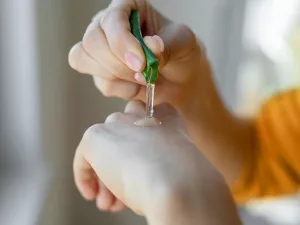

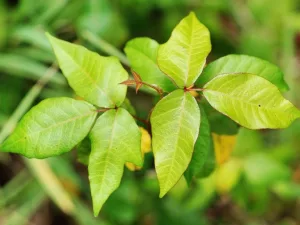
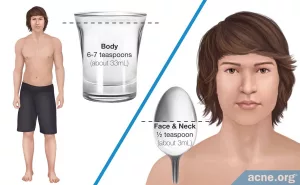
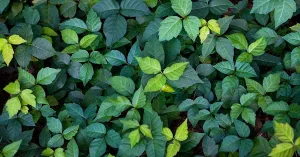
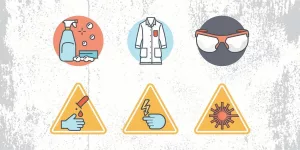





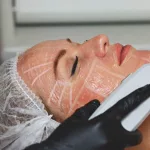

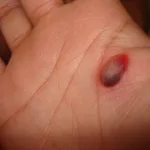


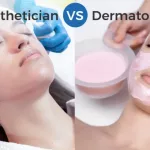

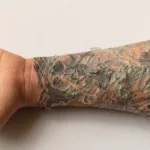

Leave a Reply
You must be logged in to post a comment.